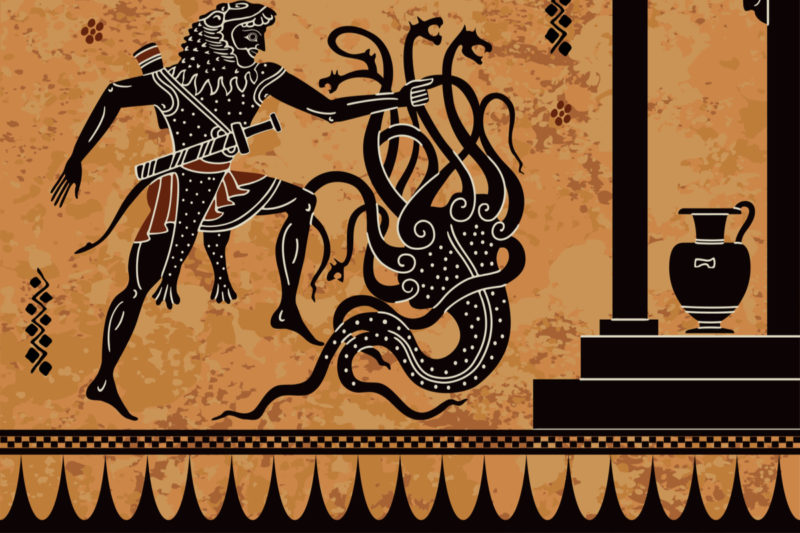The Three Biggest Myths about Political Economy

Myths abound. This reality is unsurprising given that the number of ways to be wrong is immensely larger than the number of ways to be right. And because of the enormous complexity and dynamism of society and the economy, myths about society and the economy are especially abundant.
Most economic myths are (relatively) small. Trade deficits are evidence of domestic economic failure or of foreign government cheating – minimum-wage legislation is a boon for low-paid workers – government debt owed to ourselves isn’t a problem even if the size of this debt is massive – active supervision by antitrust authorities is necessary to keep the economy competitive – more immigration lowers the standard of living for many native-born workers – middle-class Americans have stagnated economically for more than 40 years – sound money can be supplied only by the state – economic growth depletes resources: these and a practically uncountable number of other such myths are, and for many years have been, current.
Although such myths will never be completely slain, their baneful impacts can be reduced by sound and unrelenting economic education and public commentary. (To this end, AIER is doing more than its share.) But even more destructive than are these (relatively) small myths are three Big Myths – foundational misconceptions of the nature of social and economic reality.
Big Myth #1
The most pernicious of all Big Myths is that the economy and society – or, at least, any economy that is productive, and any society that is good – are the conscious creation of the state. Classical-liberal scholars have fought for centuries against this social-creationist myth. In the 18th century Adam Smith celebrated the market’s invisible hand and warned against the “man of system” who arrogantly fancies that he (or she) can rearrange flesh-and-blood people in society as a chess player rearranges inert pawns and princes on a chess board.
In the 19th century Herbert Spencer observed that nearly all legislative schemes for uplifting society are doomed to fail because “[t]hey have their root in the error that society is a manufacture; whereas it is a growth.” In the 20th century F.A. Hayek repeatedly insisted on the vital importance of recognizing that while modern society and the economy are indeed the results of human action, they are not – and cannot possibly be – the results of human design.
In the 21st century this essential truth is emphasized and explained eloquently by a host of brilliant scholars, including, for example, Steve Davies, Richard Epstein, Deirdre McCloskey, Tom Palmer, Matt Ridley, and Mario Rizzo.
Yet this Big Myth seems only to spread and strengthen. Listening to politicians, and reading everything from popular punditry to much seemingly deep scholarship, makes clear that large numbers of people – I dare say most – conceive of social order, economic growth, and widespread prosperity as being unobtainable unless engineered into existence by the state.
Big Myth #2
An implication of this Big Myth is another Big Myth – namely, because all that is good in our social and economic relations is made possible by the state, each of us is deeply and forever in debt to the state. The state, dogmatically believed to be a secular creator, is therefore supposed to be owed by each of us everlasting thanks and offerings. (Oh, and owed also praise: singing the national anthem is not far removed from singing “Praise to the Lord” and other Christian hymns that I sang as a boy attending Catholic mass.)
“You didn’t build that!” was Barack Obama’s way of scolding everyone who denies that the state owns an open-ended claim on Americans’ incomes. According to this Big Myth, to complain about paying taxes – and, worse, to actively oppose tax increases – is selfishly to resist giving to the secular creator what is owed to it by each of us puny beneficiaries of the state’s beneficence, magnificence, and grace.
Big Myth #3
A third Big Myth is that government carries out the will of the people as long as its top officials are chosen by majority rule. At root, this naïve faith in majoritarian democracy is mistaken because there is, in fact, no will of the people. “The people” is not a sentient creature with a mind and preferences and fears and hopes. “The people” includes, of course, sentient individuals each with his or her own mind and preferences and fears and hopes. But this reality of each member of the group does not transform the group into a giant individual equivalent in all but size to each of the flesh-and-blood men, women, and children who comprise the group.
This ‘non-sentience’ of a group of individuals does not mean that two or more – or even millions of – individuals cannot agree upon goals to pursue collectively. Should we or should we not pool some of our resources to build a highway? Should we or should we not organize to provide community policing or national defense? And some form of democratic decision-making is the best means available for registering the preferences of each individual in a way that results in an acceptable collective decision.
But this reality does not mean that the results of the democratic decision-making process reveal that “the people” have a will that is in any way similar to the will that is possessed and exercised by each individual. All that even the best collective decision-making process does is to discover a compromise outcome that is acceptable to each member of the group.
Anthropomorphizing any group of individuals, and supposing that the results of majority rule express the will of this collective creature, creates the false and dangerous impression that if any individual objects to a majority-rule outcome, this individual is attempting to elevate his paltry self over a will not only as real as his own but also greater because it is that of many individuals. But, again, “the People” is not a being with a mind or a will. It follows that no method of collective decision-making, not even the most ideal form of democracy, reveals the People’s will. That which is unreal cannot be revealed.
Big Myths Be Gone!
If society would be rid of these three Big Myths, legitimate disagreement would still reign over the size and scope of government. Compromise for collective decisions would still be necessary, and democratic decision-making would remain the best means of achieving this compromise. But the risk of tyranny would be much reduced from what it is now because no one would anthropomorphize collections of people or deify the state.











